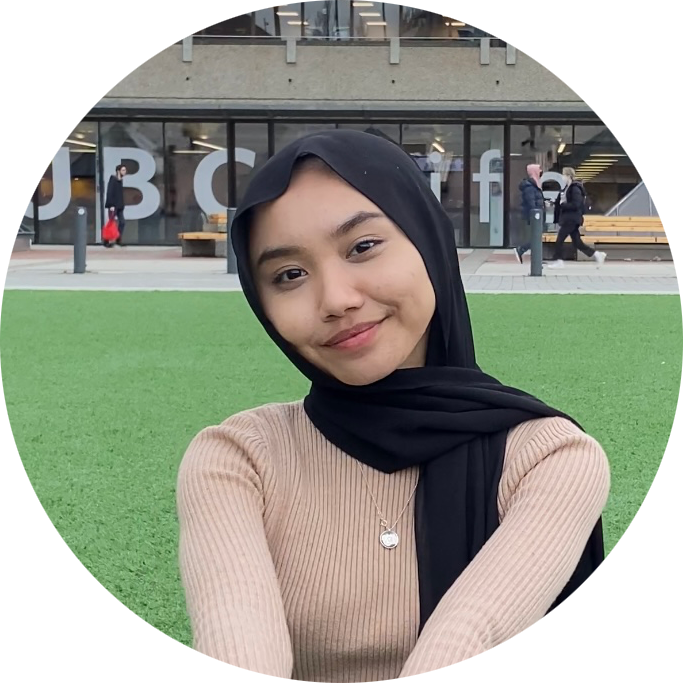In this second rendition of Cultura, Uzlah ponders on Vancouver’s warm embrace towards herself, her identity as a Muslim, and the wonders of multiculturalism as a whole
Bhinneka Tunggal Ika.
A phrase so dearly close to every Indonesian, meaning ‘different, yet one’ or often interpreted as ‘unity in diversity’. As we grew up in a big nation of more than 200.000 people with diverse backgrounds, confronting differences with tolerance and solidarity has been a trait taught to every generation. It’s not uncommon, however, for clashes and conflicts related to these differences to occur in Tanah Air. As I spent the last four months living and studying in Vancouver, Canada, I realized that this multiculturalism issue is also the case there.
When I first stepped foot in Vancouver, I did not expect the city to be so diverse yet similar to Indonesia — a melting pot of various cultures. The province where Vancouver is located, British Columbia, is even designated as the most diverse province in Canada, which welcomes 40.000 immigrants each year (Government of British Columbia, n.d.). With the city’s program titled the ‘Diverse communities and multiculturalism’ that supports dialogues to strengthen relations between indigenous, immigrants, and non-indigenous, the city has a relatively advanced recognition of its diversity (UNESCO, n.d.).
One thing that continues to amaze me and other fellow IISMA awardees at the University of British Columbia is the territorial acknowledgement often stated at the beginning of formal speeches here in Canada. This act of acknowledging that the land where today’s Canada sits on the land originally inhabited by indigenous peoples. However, some issues pertaining to indigenous rights still occur around the city and the rest of the country as well, such as the Trans Mountain pipeline’s route that lies within the territory of the Secwepemc Nation — an indigenous land not far from Vancouver (Parrish, 2022).
On a wholly different note, as someone who’s visibly Muslim, coming to a Western country often instils certain worries about how the people there would perceive me. On the contrary, my day-to-day life was far from these worries. I could say that most Canadians and the people living in Canada are respectful of any racial and religious backgrounds. Not only was everyone generally kind and keen to learn about other cultures, but the inclusivity of the communities there also made finding fellow Muslims and Muslim-friendly activities pretty easy.
Of course, it couldn’t be all picture perfect. I remember waking up during Ramadan to the news that an attack happened near a mosque only 40 kilometres away from campus. On the flipside, the lack of daily prayer calls and month-long festivities during the holy month made it a bit harder and sometimes lonelier to live as a Muslim there, unlike the life of being the majority group in Indonesia. Finding halal-certified food was also a bit of a struggle since it’s only readily available in certain grocery stores. However, it was fairly easy for me to opt for plant-based alternatives. In short, Vancouver has well-incorporated Muslims in the bustle of the city’s multiculturalism, but it doesn’t go without efforts of personal adaptation.
As such, it is no surprise for Vancouver to be named the ‘anti-Asian hate crime capital of North America’ during the height of discrimination toward Asians in 2020 (Baylon & Gecco, 2020). I was lucky that any kind of discrimination was never the case for me in Vancouver. Although, just like in Indonesia — a place where the community is so diverse — the possibility of clashes, conflicts, and hate crime is always there.
Reflecting on personal experiences, observations and the news circulating around the issue of cultural diversity in Vancouver, I could understand that the city is an ever-evolving hub for different cultures. Vancouver will continue to see the expansion of its immigrant demographics while navigating through the trials and tribulations of diversity. Just like Indonesia, the aim to unite communities amidst its immense diversity will be a challenge that will either make or break — but it is always something worth trying.

Created by : Naifah Uzlah Istya Putri
Uzlah is an International Relations Student from University Indonesia and IISMA Awardee 2021 to University of British Columbia. She spends most of my time being involved in environmental movements and organizations, or reading books while sipping coffee.
